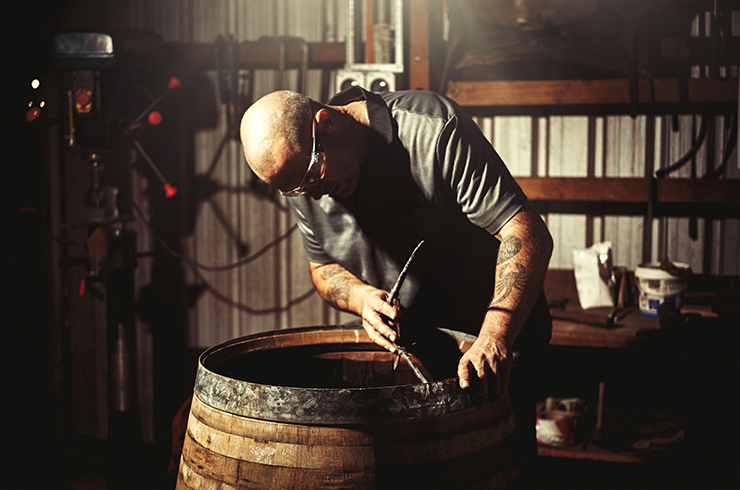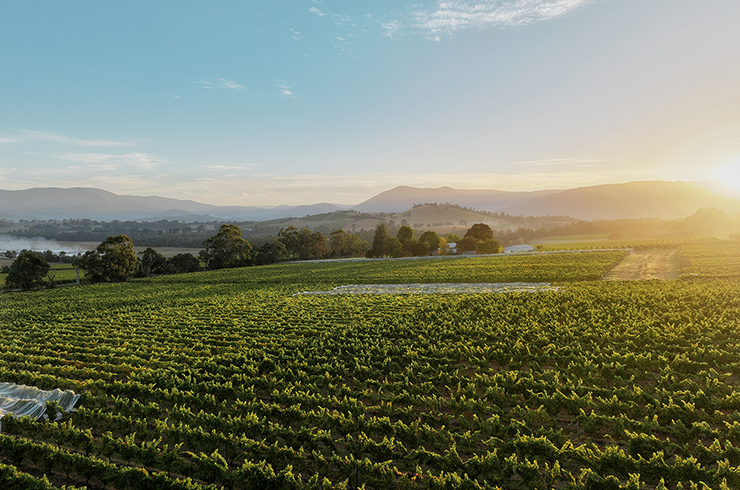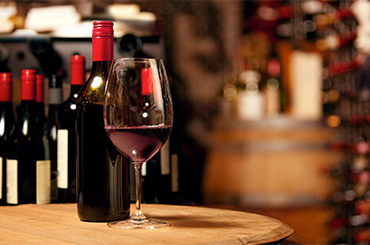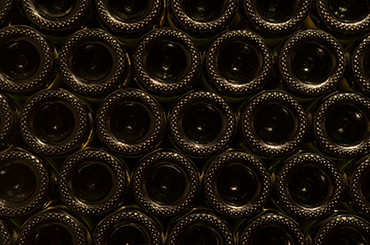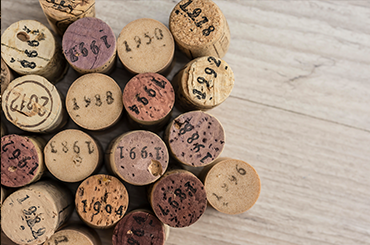Natural wine
Q. Can you cellar natural wine in the same way as those with yeast or preservatives added?
Steve Wood
Pending you have the right cellaring conditions, any wine can be put down, according to Lucy Margaux Vineyards producer Anton von Klopper. The natural winemaker from South Australia’s Basket Range has enjoyed wines without any sulphur added with up to 17 years of age on them that have still looked incredible. However, he often finds many wines don’t age well, regardless of whether they are conventionally or naturally made. “That is unfortunately when you need to know the producer and/or the vintages,” he says. For Anton, cellared wine should be about seeing the retention of purity, freshness and tightness – “not just something that hasn’t fallen apart”. As for natural wines with ageability, Anton has a couple of pointers. “Orange wines age fantastically well without sulphur because they have the tannins. And some varieties tend to hold better, such as chenin blanc,” he says.
Champagne and sparkling
Q. I’ve always wanted to know if it is true that Champagne and sparkling wines should only be cellared standing upright. And if so, why?
Kylie Karaca
Champagne and sparkling wine authority Tyson Stelzer says this is an interesting proposition. “There have been some studies done and in some instances, Champagne has aged better standing than those lying down,” he says. “There has been the suggestion that if you lie a bottle down, it might leak, but the disadvantage in cellaring them upright is that you don’t know if they do.” As for Tyson’s personal approach to cellaring his own sparkling wine, he lies them down because his cellar – like most – doesn’t allow for bottles to stand. “Even though the studies have been done, I’ve also not yet seen any Champagne house cellar their wines standing.”
Pinot noir
Q. How long can I cellar Australian pinot noir?
Evelyn Towers
When it comes to putting a timeframe on pinot noir, Phillip Jones of Victoria’s Bass Phillip references his own range. “The Crown Prince is really good between four and seven to eight years of age. And the Reserve needs 15 years,” he says. Although, Phillip notes that he has enjoyed some of his own Reserve pinot noir from magnum with 25 years on them that have still been vibrant, rich and fresh.
Cabernet sauvignon
Q. How long should you cellar a good Australian cabernet sauvignon?
Evelyn Towers
Wynns Coonawarra Estate’s winemaker Sue Hodder says cellaring cabernet sauvignon comes down to taste. “Personally, for me, I like a good Australian cabernet at around eight to 12 years, as a really general rule of thumb,” she says. She also notes that good, young cabernet will be fruity, bright and floral, while “middle-aged” wines at their peak will have less of those particular flavours, but a greater array of aromas and more leafy, savoury characters. “These include bay leaves and even mushrooms and soy sauce, but you still want a little of those florals and fruitiness. A cabernet at its peak will show a balance of those young traits with secondary characters like chocolate, cedar and more earthy notes.” As with all varietals, Sue says the key to storing cabernet is ensuring a consistent, cool temperature (she suggests around 15 degrees) and to also avoid cellaring young cabernets that have enormous tannins because they won’t go the distance.
Dessert wine
Q. I have several bottles of stickies properly cellared, but they are slowly becoming dark yellow to light brown. Should I be concerned?
Robert Coombs
In a word, no. Darren De Bortoli of the Riverina’s De Bortoli Wines – producer of the famed De Bortoli Noble One– says it shouldn’t be a concern. “It’s certainly a character of heavily botrytised wines, particularly the German styles. Some Australian dessert wines can go very dark, but if you pulled the cork on them, you’ll find the wine’s flavours have evolved, but not developed any of those horrible oxidative characters,” Darren says. He adds that it’s a matter of personal taste as to when to drink aged dessert wines, but in some cases, they can live for up to 50 or 60 years. “To reassure yourself that the wines are okay, pull one out and try it!” he says.
